28 week of pregnancy. The fetus weighs 1100-1300 grams, its growth is 34-37 cm. The baby develops muscle tissue intensively. If a Rhesus conflict between mother and fetus is possible, the doctor must take special measures.
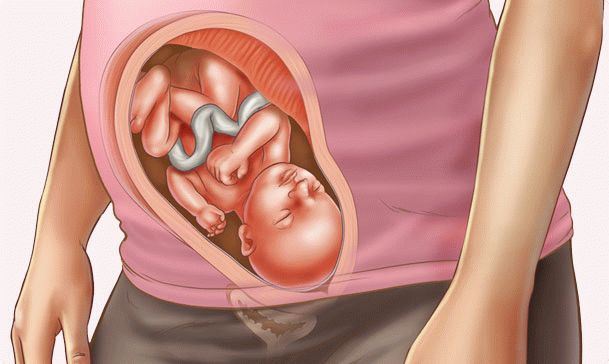
Organizational issue
28 weeks is a special time for mothers with twins. The long-awaited vacation begins. He is needed in order to calmly, without going to work, inform the pregnancy, give birth and recover after childbirth. Those women who are expecting one baby go on vacation two weeks later.
What month?
The twenty-eighth obstetric week is the end of the seventh lunar month of pregnancy. So, about the 26th week from the conception of the fetus is coming. Interesting about the timing - here.
Fetal development
By the beginning of the third trimester of pregnancy in children, differences in growth and body weight are clearly manifested. Especially they will become noticeable after childbirth, when the children for the first time in their lives are measured and weighed. In the first five months of pregnancy, these differences are almost absent. And now, each future baby shows its personality. With a multiple pregnancy, babies are usually born with less height and weight than with a single pregnancy. And now twins and triplets under the hearts of their mothers are only slightly behind in their growth and body weight from single babies.
The circumference of the fetal head is now 24-28 cm, and the length of the arms and legs is a little more than 10 cm, height 35 cm, weight 110 g.
Continue to develop and improve:
- Subcutaneous fat. Its layer becomes thicker, so that the skin of the fetus gradually straightens.
- External protective grease. It does not allow the skin of the fetus to swell from constant exposure to water.
- The ability to blink. The muscles of the eyelids of the fetus are very tiny, but they will help the baby born to open his eyes.
- Muscle. Our muscles are very complex. These are special fibers that join in bundles and are attached to the bones by ligaments. Muscles of the fetus develop until the birth.
- Bone strengthening. Calcium, which comes with food to the mother’s blood and then to the fetus, goes to the mineralization of the entire skeleton. Fully human bones develop at the end of the teenage period.
- Cortex. New gyruses form in it.
- Hair on the head, cilia, eyebrows, nails. They are growing up a bit. This does not occur in every fetus. Many babies are born almost without hair, they grow back later.
This is what the fetus looks like at week 28:
The brain activity of the fetus never ceases. Even in a dream, the baby moves, makes breathing movements, frowns, frowns, and blinks. In addition, the fetus trains sucking and grasping reflexes. One of the baby's hands is more active than the other.This means that the brain has already decided whether a right-handed person or a left-handed person will be born.
It is too early to worry about how the fetus is located. At one examination, the doctor may report that the baby got his head down, as expected. By the next crumb is able to roll over the other way and even across. This is only unpleasant if premature birth begins in the 28th week.
In this case, the doctors will act according to the circumstances. Perhaps they will decide to stop labor. There are special tools for this. Then the pregnant woman will be carefully monitored until the dangerous situation disappears. If it is impossible to stop childbirth (for example, when amniotic fluid flows), the newborn will definitely need special equipment to help him survive. The main thing - now the lungs of the fetus are developed enough so that in case of premature birth he can breathe on his own.
Blood type and Rh factor
Surely you remember: in one of the first weeks of pregnancy, the doctor of the antenatal clinic directed you to examine the blood for a blood group and Rh factor. You had to find out the same indicator in relation to the father of the child. Now is the time when this knowledge will be especially important.
What is generally a positive and negative Rh factor of blood? This is the presence or absence of specific protein molecules on the surface of red blood cells. If they are - the Rhesus factor is positive, no - negative. Once this feature was discovered in monkeys, rhesus monkeys, hence the term. Knowing your group and Rh factor is necessary for donation, blood transfusion and pregnancy.
If one parent is Rh-positive and the other has Rh-negative blood, the same opposite can occur in the mother and the fetus. The woman’s body will feel the foreign components in the circulatory system common with the fetus and will begin to fight, that is, produce antibodies. For the fetus, it is dangerous with complications.
At the 28th week of pregnancy, doctors should take measures to eliminate a possible Rhesus conflict. The woman will be given immunoglobulin. This substance inhibits the immunity of the mother so that antibodies are not produced and there is no attack on the fetus. The same will be done after childbirth and in the case of some unavoidable surgical interventions - for example, if the mother needs to analyze the amniotic fluid.
Woman's feelings
Many mothers look at this period in the mirror and say that the stomach grows right before our eyes. Do not tease yourself with a bun, unless loving. The view that a pregnant woman is completely unattractive is a big mistake.
Your uterus grows, and the skin on your stomach stretches. Because of this, you can often feel itchy. Never comb the skin, use special stretch marks. They will make the skin more elastic and relieve irritation.
Your heart is now pumping a huge amount of blood. Because of this, it does not always cope with the work, and you often may not have enough air, with normal walking you may suffocate. Another reason for shortness of breath is a grown uterus, which presses on the diaphragm.
The movements of your crumbs are now felt almost constantly. This can sometimes be unpleasant due to the power of the shocks. Do not slouch when you sit. So you will give your baby a little more space and at least slightly weaken the most unpleasant tremors under the ribs.
Sometimes the stomach itself seems to move. Its entire surface tenses and then relaxes again. These are training fights. They must be irregular, otherwise consult a doctor.
In the third trimester, special hormones are produced in the blood of a woman, which make her calmer. If you still have emotional breakdowns, check your surroundings - perhaps you too often find yourself in stressful situations. Do everything possible to avoid nervous shocks, they harm you and the baby.
Weight
This week you can add up to half a kilogram. If you type more - you have to adjust the diet. Now your weight needs to be tightly controlled.However, you do not need to starve yourself if the scales showed more. A significant increase in weight may indicate internal edema, which may not occur for a very long time, but seriously complicate pregnancy.
Photo tummies at 28 weeks of gestation
Preeclampsia and preeclampsia
Most often, these pregnancy complications arise in the third trimester, although they can manifest themselves several weeks earlier.
Gestosis is a late toxicosis. Information on this condition can be found here..
Preeclampsia is a very serious condition, dangerous to the life of the mother and child. In case of complications, a woman may develop cerebral edema, impaired kidney, liver and heart function. An alarm is a noticeable increase in blood pressure. Especially for those women who previously did not have such problems at all. It is equally important to know the other symptoms of this complication:
- severe headaches;
- “Flies” before the eyes;
- nausea, vomiting;
- cramps.
If all these signs have appeared in you, call the ambulance. Preeclampsia can develop very quickly from mild to severe. In extreme cases, you may be shown an early birth. This will be done to save two lives at once.
Why does this happen?
One can never accurately predict whether a woman will have any of two complications. The main factors that can lead to gestosis and / or preeclampsia are as follows:
- heredity (ask mom and sisters how they wore their kids);
- excess weight;
- age over forty years;
- chronic diseases, primarily impaired renal function;
- autoimmune diseases (i.e. impaired immunity);
- complications in the third trimester during a previous pregnancy.
Only full attention to their health and regular examinations of women at risk help prevent complications, or at least their serious consequences.
Pain and discharge
Remember that you really should not be hurt. Normally, only unpleasant sensations are possible. If your chest, back, lower back, ankles or lower abdomen are a little aching, this is the norm.
Carefully monitor the discharge:
- Bloody - possible detachment of the placenta, premature birth.
- Transparent, watery, plentiful - amniotic fluid leaks, this is due to cracks in the fetal bladder.
- Curd cheese is most often associated with the development of thrush.
- Yellow, purulent signals of infection.
If you have any symptoms, go to the doctor for an additional examination. Normal vaginal discharge should be light, odorless, and mild.
Colostrum from the chest will stand out until the birth and some time after them. It is impossible to express it. For copious discharge, use the pads for the bra.
When else to go to the doctor
If you have no complaints, then just follow the calendar of visits. If you suspect a complication, the doctor may prescribe blood and urine tests, ultrasound, CTG (checking the activity of the heart of the fetus). During ultrasound scanning, if the doctor’s equipment allows, ask for a photograph. Such pictures evoke a lot of positive emotions and will be very interesting to the child’s father, older children and other relatives.
Go to the doctor right away if you have a cold. Self-medication is unacceptable, even if you went to the pharmacy and consulted with a pharmacist. In a pharmacy, no one will take into account all the features of your condition. This can only be done by a doctor.
Recommendations
[sc: rsa]
- In no case do not retreat from the diet. Fractional nutrition 5-6 times a day is much better than three meals a day. Avoid pickles, canned foods, and spicy foods completely. If you really want sweets, then you can only afford fruit.
- Sour milk products and prunes will help prevent constipation.
- To prevent hemorrhoids after defecation, wash with warm water.
- Shake your hands more often, raise and knead them to improve blood circulation and prevent swelling.
- For the prevention of edema on the legs do not go for long, do contrast douche.
- Compression socks and knee socks will help with dilated vessels on the legs.
- Talk with your child’s father and other relatives.Decide who will help you after the baby is born. Perhaps, soon after the birth, you plan to go to work - all this is desirable to decide now.
- If you haven’t attended a birth preparation course, sign up. Well, if you will be accompanied by the father of the child. Discuss with him a possible presence at birth. This is a very delicate question for which not everyone is ready.
- Your sex life may remain the same. Limitations: Avoid abrupt movements and any pressure on the stomach. Contraindications: expectation of twins, severe complications (described above), lack of water, the threat of premature birth.
- Wear comfortable clothing and underwear. No pressure or constriction, as this makes your blood flow difficult and may make you feel unwell.
- Do not forget about moderate physical activity. Go to the pool just to swim or do water aerobics for pregnant women, learn a special yoga complex, do Kegel exercises.
- Wear a bandage, it will help you less feel the weight of a growing tummy.
For you comes the most responsible and largely difficult time of pregnancy. Be strong and healthy, so that your baby develops safely until birth.
Video guide: 28th week of pregnancy, fetal development, gestosis, Rh factor, preeclampsia
[sc: ads]
Affiliate delivery


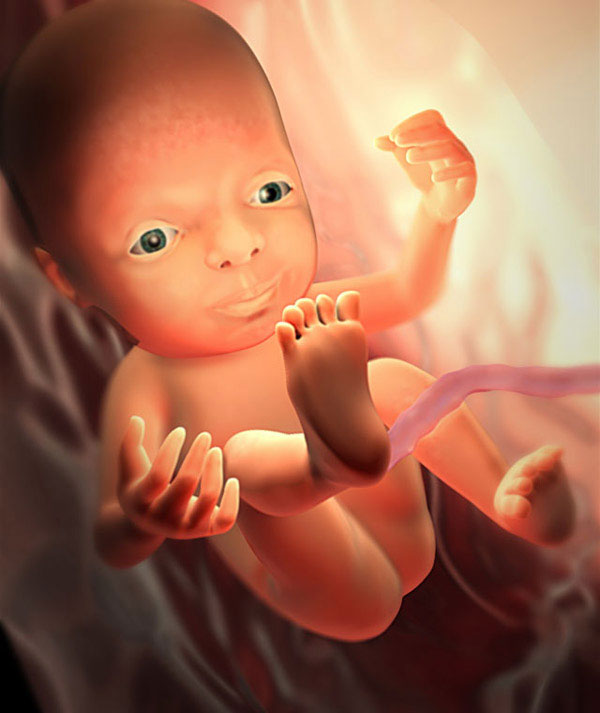
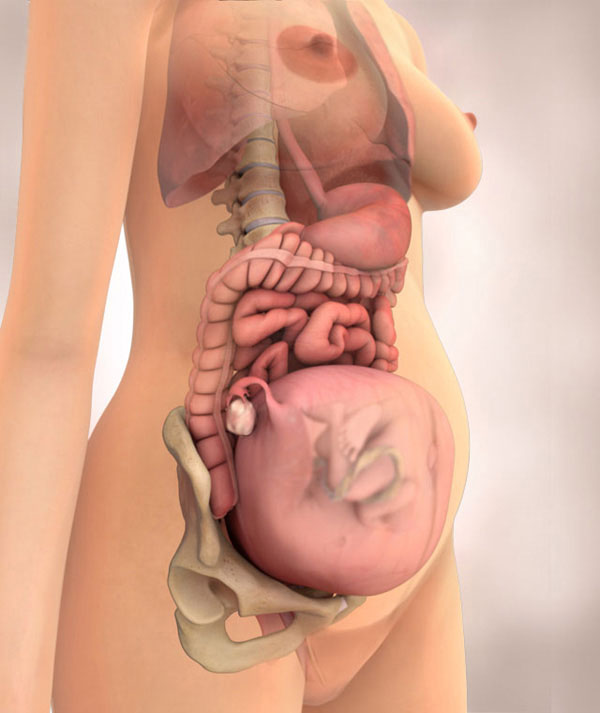
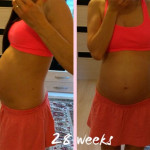


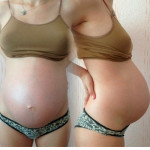
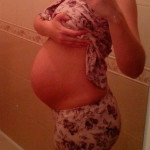
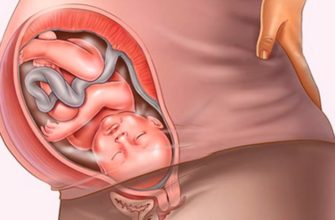
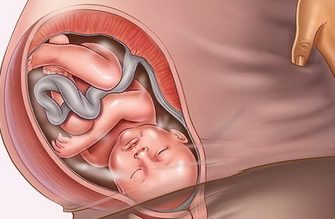
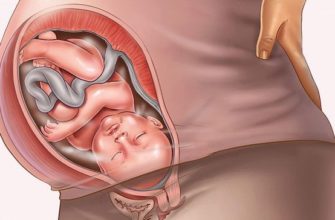
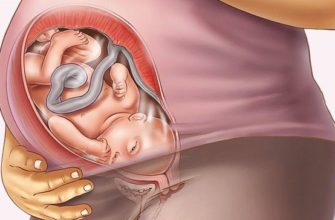
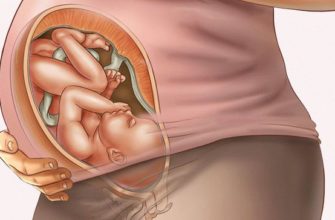
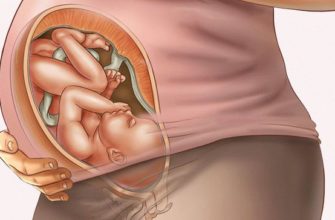
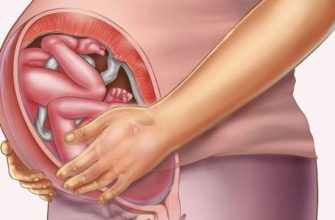
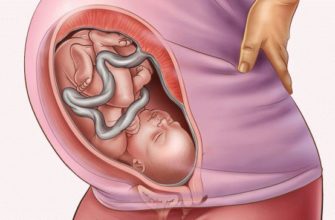
At week 28, I already had such a stomach that it seemed to me nowhere else to go (how wrong I was). It became hard to work - I could not find a comfortable posture, spun on a chair, ran to the toilet every 15-20 minutes due to the fact that when I was sitting my stomach pressed on the bladder. I dreamed on maternity leave and counted the days before him.
At week 28, the baby and I were in the hospital. By this moment, I had already gained about 12 kilograms, which really bothered my doctor. Plus swelling. The daughter already weighed 1248 grams and was 33 cm tall.
At this time, the baby, as it seems to me, already hears and understands everything. It’s very good to talk to him, stroking his tummy, he begins to react immediately. But from stretch marks, you can still use oils for the skin, they are even better than moisturizing creams and prevent stretch marks.
The beginning of the third trimester is a difficult period, constant constipation, dizziness, shortness of breath. The article is very helpful. Thanks to such articles, you better understand the causes of your ailments. I went to the doctor on time and they put me in the hospital for preservation. There were severe swelling.
28 weeks don't worry